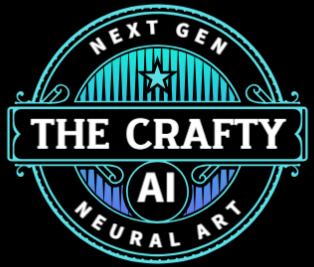Meta AI: Exploring Meta’s Artificial Intelligence Projects
Meta AI, the artificial intelligence division of Meta, is at the forefront of advancing AI technologies for a wide range of applications. Established to push the boundaries of AI, Meta AI focuses on creating systems that enhance human experiences across Meta’s platforms, including Facebook, Instagram, WhatsApp, and beyond. This article explores Meta AI’s mission, key projects, technological advancements, and its impact on the AI landscape as of July 2025.
Mission and Vision
Meta AI’s mission is to develop AI that accelerates human scientific discovery and fosters seamless interaction between humans and technology. By prioritizing open-source innovation, ethical AI practices, and user-centric design, Meta AI aims to create tools that empower individuals and communities. Its vision is to build AI that understands and interacts with the world in a human-like way, emphasizing accessibility and inclusivity.
Key Projects and Technologies
LLaMA Models
Meta AI has gained significant recognition for its LLaMA series, a family of language models designed for research purposes. These models are known for their efficiency and performance in natural language processing (NLP) tasks, such as text generation, translation, and sentiment analysis. LLaMA models are widely used by researchers worldwide due to their open-source availability, enabling rapid advancements in AI research.
AI-Powered Content Moderation
Meta AI plays a critical role in content moderation across Meta’s platforms. By leveraging advanced machine learning algorithms, Meta AI detects and mitigates harmful content, including misinformation, hate speech, and graphic material. These systems use a combination of computer vision, NLP, and real-time analysis to ensure safer online environments.
Augmented Reality (AR) and Virtual Reality (VR)
Meta AI is a driving force behind Meta’s metaverse ambitions. Through projects like AI-powered AR filters for Instagram and advanced VR experiences for the Meta Quest, Meta AI integrates AI to create immersive, interactive environments. These technologies rely on real-time object recognition, spatial mapping, and gesture tracking to deliver seamless user experiences.
AI for Accessibility
Meta AI is committed to making technology accessible to all. Projects like AI-driven real-time translation for WhatsApp and automatic alt-text generation for images on Facebook enhance inclusivity for users with disabilities. These tools break down language barriers and ensure content is accessible to visually impaired users.
Ethical AI and Open-Source Commitment
Meta AI emphasizes responsible AI development. It adheres to strict ethical guidelines to address biases, ensure transparency, and protect user privacy. By open-sourcing projects like LLaMA, Meta AI fosters collaboration within the global AI community, allowing developers to build upon its innovations while maintaining high ethical standards.
Impact and Future Directions
Meta AI’s contributions have reshaped how AI is integrated into social media, communication, and immersive technologies. Its advancements in NLP and computer vision have set benchmarks for performance and efficiency. Looking ahead, Meta AI is exploring multimodal AI systems that combine text, image, and audio processing to create more intuitive interactions. Additionally, its focus on sustainable AI aims to reduce the computational footprint of large-scale models.
Conclusion
Meta AI is a pivotal player in the AI ecosystem, driving innovation across social platforms, AR/VR, and accessibility. By blending cutting-edge research with practical applications, Meta AI is not only enhancing user experiences but also shaping the future of AI. As it continues to evolve, Meta AI’s commitment to ethical, open-source, and inclusive AI will remain central to its mission.

